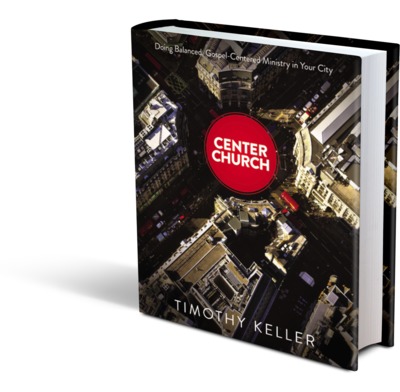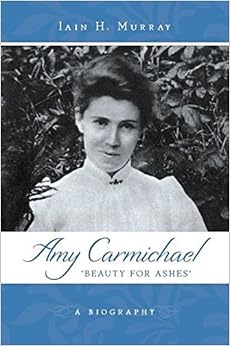
Center Church: Doing Balanced, Gospel-Centered Ministry in your City,
by Timothy Keller, Zondervan, Kindle Edition.
You've got your fundies on the one hand; right on many things, but also a bit repulsive. Not being very into engaging the culture and that. And then you've got your liberals on the other; wrong on most things, but also quite nice. They don't so much want to engage the culture, as have it tell the church what to believe about stuff. Someone's got to. Between these two extremes is Keller's 'Church of the Third Way', or 'Center Church' as he persists in calling it. Look, I know it's 'Centre', not 'Center', but I'm contextualising my spelling as it's an American book I'm reviewing and spelling isn't their strong point across The Pond. OK?
Anyhow, a 'Center Church' is thoroughly evangelical when it comes to believing and proclaiming the gospel, but is also culturally engaged and socially active. The 'Center Church' vision is especially apt for big cities like New York, where Keller ministers, but other global cities such as London, Paris, or Mexico City would fit the bill. I serve town and village churches. There isn't much resemblance between New York and Westbury. or West Lavngton and Manhattan. We don't have sky scrapers, yellow taxis, or Woody Allen, and they don't have a massive White Horse carved into a hillside. As far as I know, anyway. Despite these drawbacks, there is enough in Keller's work to provide food for thought for those who, like me, are involved in small town-based ministries.
The book begins with a clear, compelling and unambiguous statement of the Gospel that the church has been called to perform and proclaim. Only the gospel can tear down our idols and reconnect us with the one true and living God who is Father, Son and Holy Spirit. Keller is careful to distance himself from those who are so concerned to promote social activism that they neglect or even reject evangelism and disciple making. Above all else church exists to fulfill the Great Commission. That is done as the 'scattered church' goes out into the world, bearing witness to the gospel in everyday life. But Keller also emphasises the importance of gospel preaching in the context of the 'gathered church'. Old Testament revelation held out the expectation that the nations would come to know the Lord as Israel declared his praises. In the New Testament we have indications that non-believers were present in church meetings and that the Word had a saving impact on their lives, 1 Corinthians 14:24-25.
Keller has a lot to say on engaging the culture. While the gospel doesn't change, that essential message needs to be communicated in culturally appropriate ways. We see glimpses of that in the New Testament. Paul's approach in Acts 13 was quite different to the way he went about things in Acts 17. In the USA and UK the culture is increasingly 'post-Christian' and the church cannot simply assume that non-believers are familiar with the basic elements of the Christian faith. 'Defeater beliefs' that stand in the way of faith need to be challenged in a winsome and persuasive way. Do we preachers work hard enough at relating the eternal Word to the concerns and issues of our own day and age? As we marshal arguments for the gospel in our preaching will will not only speak to any non-Christians in our congregations, we will also help our people to be more effective in giving a reason for their hope in personal witness.
We preachers are often quite negative when it comes to speaking about the culture. It's all, 'things are getting worse and worse. Have nothing to do with it'. I've even heard preachers say with some pride, 'We don't compromise by trying to be contemporary.' But that's just silly. Being a bit quaint and old fashioned is not a litmus test of faithfulness to the gospel. Keller's approach is helpful here. Rather than blanket negativity, he suggests that in any culture there are aspects that the gospel confirms, completes and contradicts.
The gospel confirms the unique value of each individual human being. Our culture by and large (under the influence of Christian teaching no doubt) agrees with that. Hence legislation that outlaws discrimination on the grounds of gender, race or disability. In our culture people are questing for meaning and purpose in life. Some do so through pleasure seeking, others by steadfastly pursuing their careers. But it's only the gospel that can provide complete fulfillment and satisfaction by reconciling us to God. Sadly there are things in our culture that the gospel contradicts. Abortion, for example. And when that is the case, the task of the church is to announce God's shuddering, "No!" and call for repentance.
But by God's 'common grace' the culture isn't all bad and Christians are called to engage with it through artistic pursuits, in the workplace, and by getting involved in their local communities. If all preachers ever do is denounce the culture, that will lead to Christians disengaging from life in the world, rather than seeking to be salt and light in it. The church should help believers understand what it means to put their faith into practice in the whole of their lives. Preachers should apply what the Bible says not only to the life of the gathered church, but every area of life. It's only right that churches and individual Christians should seek to build bridges to their local communities by running parent and toddler groups, contributing to food banks, supporting the sick and troubled, getting involved as school governors, and so on. It's not a matter of either evangelism, or seeking the well-being of the community, but gospel faith working by love.
I reflect on what Keller has to say on the interplay between faith and culture as it touches on the 'Two Kingdoms' view in another post.
We preachers are often quite negative when it comes to speaking about the culture. It's all, 'things are getting worse and worse. Have nothing to do with it'. I've even heard preachers say with some pride, 'We don't compromise by trying to be contemporary.' But that's just silly. Being a bit quaint and old fashioned is not a litmus test of faithfulness to the gospel. Keller's approach is helpful here. Rather than blanket negativity, he suggests that in any culture there are aspects that the gospel confirms, completes and contradicts.
The gospel confirms the unique value of each individual human being. Our culture by and large (under the influence of Christian teaching no doubt) agrees with that. Hence legislation that outlaws discrimination on the grounds of gender, race or disability. In our culture people are questing for meaning and purpose in life. Some do so through pleasure seeking, others by steadfastly pursuing their careers. But it's only the gospel that can provide complete fulfillment and satisfaction by reconciling us to God. Sadly there are things in our culture that the gospel contradicts. Abortion, for example. And when that is the case, the task of the church is to announce God's shuddering, "No!" and call for repentance.
But by God's 'common grace' the culture isn't all bad and Christians are called to engage with it through artistic pursuits, in the workplace, and by getting involved in their local communities. If all preachers ever do is denounce the culture, that will lead to Christians disengaging from life in the world, rather than seeking to be salt and light in it. The church should help believers understand what it means to put their faith into practice in the whole of their lives. Preachers should apply what the Bible says not only to the life of the gathered church, but every area of life. It's only right that churches and individual Christians should seek to build bridges to their local communities by running parent and toddler groups, contributing to food banks, supporting the sick and troubled, getting involved as school governors, and so on. It's not a matter of either evangelism, or seeking the well-being of the community, but gospel faith working by love.
I reflect on what Keller has to say on the interplay between faith and culture as it touches on the 'Two Kingdoms' view in another post.
The writer has some helpful things to say on every member ministry and what that looks like in practice for both the 'gathered church ' and 'scattered church', or 'organisational church' and 'organic church', as he puts it. His preferred method of reaching cities for Christ is church planting. I'm fully behind church planting ventures. As a fellowship we support the Grace Baptist Partnership. But such strategy isn't necessarily viable for small town churches, let alone village works. In those cases it's more a matter of revitalising existing local churches and reconnecting them with their local communities.
Keller's constant attempt to grab the middle ground can grate a little, You can grow tired of, 'On the one hand this extreme, and on the other that, but the Centre Church will position itself slap bang in the middle'. Some of the stuff he has to say is more relevant to a big city church with an arty, white collar membership. That isn't my lot. But there is thought provoking stuff here that caused me to reflect on my own practice and that of the churches I serve. Two big questions: How effective are we engaging the culture with the gospel in ways that confirm, complete and contradict it as appropriate? And how can we ensure that the 'organisational church' with its leadership structures, meetings and activities is equipping the 'organic church' to serve and bear witness to Jesus in today's world?
Keller's constant attempt to grab the middle ground can grate a little, You can grow tired of, 'On the one hand this extreme, and on the other that, but the Centre Church will position itself slap bang in the middle'. Some of the stuff he has to say is more relevant to a big city church with an arty, white collar membership. That isn't my lot. But there is thought provoking stuff here that caused me to reflect on my own practice and that of the churches I serve. Two big questions: How effective are we engaging the culture with the gospel in ways that confirm, complete and contradict it as appropriate? And how can we ensure that the 'organisational church' with its leadership structures, meetings and activities is equipping the 'organic church' to serve and bear witness to Jesus in today's world?

